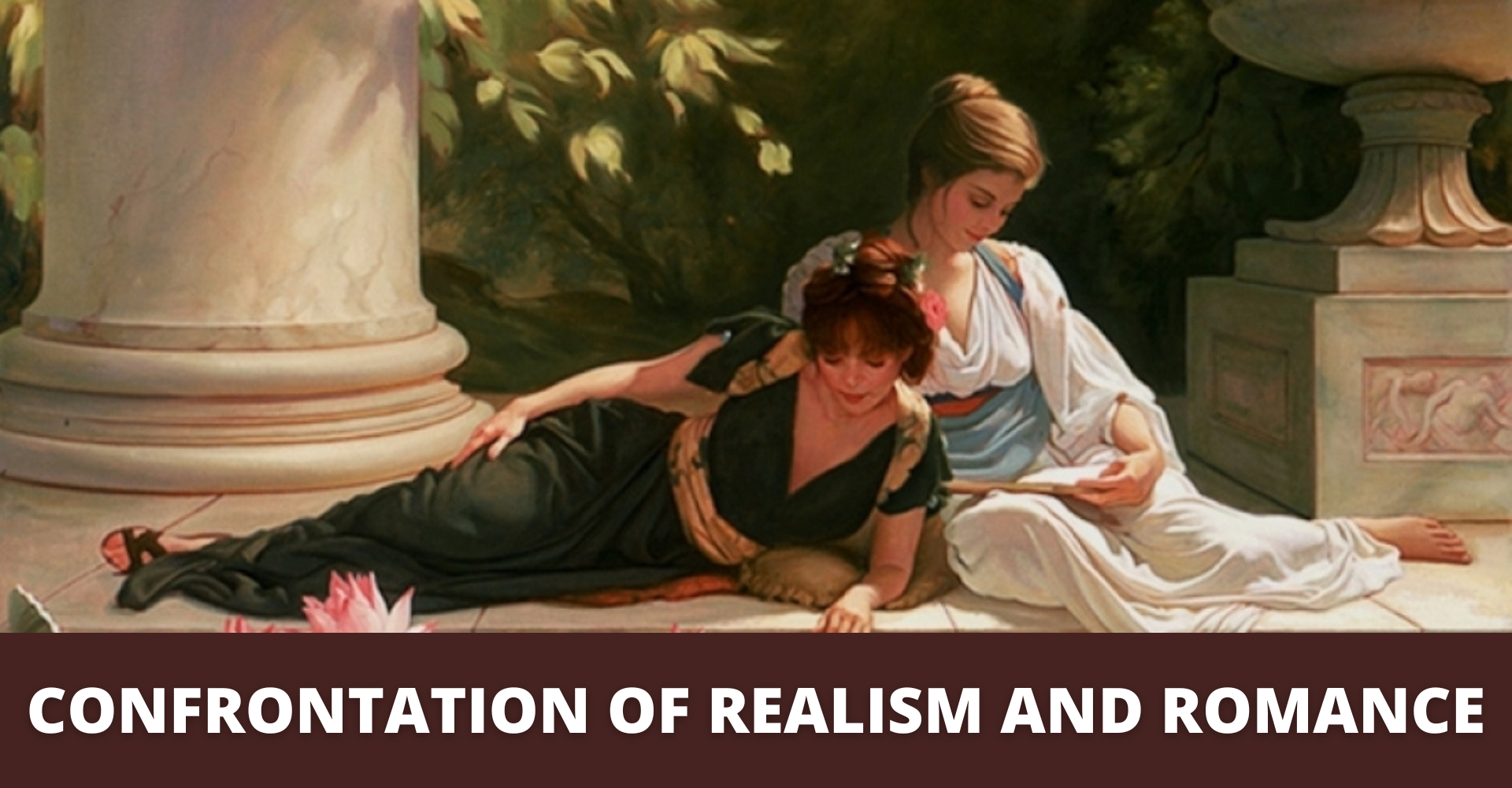The Shakespearean comedy, is a Romantic comedy. It grew out of national tastes and traditions. The dramatist does not care for any rules of literary creation, but writes according to the dictates of his fancy. The three unities are carelessly thrown to the winds. There is a free mingling of the comic and the tragic, the serious and the gay, for Shakespeare instinctively realised that life is a mingled yarn of joys and sorrows, it would be unnatural to separate them. It’s aim is not corrective or satiric, but innocent, good natured laughter. We laugh with people and opt at them. In the words of Charlton “Shakespearean comedy is not satiric. It is poetic. It is not conservative, it is creative. The way of it is that if imagination rather than that of pure reason. It is an artist’s vision, not a critic’s exposition.”
The Romantic setting : Shakespearean comedy is Romantic not only in the sense that it does not observe the classical rules of dramatic composition but also in the sense that it provides from the sordid realities. The world of a Shakespearean comedy, says Raleigh, is a “rainbow world is love in idleness.” The action takes place in some distant, for off land and the wings of his imagination he transports us to the forest of Arden, to shores of Elyria to Messina, or to an ancient forest in Greece. Though critics have tried to locate these lands, they exist nowhere but in the imagination the poet. “In this land of romance enchantment, the inhabitants have no other business but that of love-making. The intensities and realities of life shimmer into smoke and film in that delicate atmosphere.” Except in ‘The Merchant of Venice’ and The Comedy of Errors which open on a public mart, nobody ever goes to business or even things of business. A Midsummer Nights Dream reaches the very height of romance owing to the presence of the fairies, bright and beautiful, idealized being of Shakespeare’s poetry fancy.
Mingling of Romance and Realism : In this world of romance, realism enters by a few deft and subtle touches. Indeed, the mingling of romance and realism is one of the salient features of the comedy of Shakespeare. The characterisation is realistic. His personages are ordinary human beings and incidents are such as are possible in common everyday life. The poet may low or high but his feet are always solidly fixed on the earth. There is a confrontation of the romantic main-plot with a realistic sub-plot. In the idyllic ‘As You Like It‘ there is the realistic Jacques to remind us of the ingratitude of man which is more painful than winter wind or the frozen sky. In Midsummer Night’s Dream, the homely Bottom and his companions are constant reminders of the realities of life. ‘In Twelfth Night’ the Malvolio episode and the wise comments of the Fool serve the same purpose. The setting is poetic and romantic, but it is skilfuly related to real life. In this connection Charlton comments : “the world of Shakespeare’s comedy is romantic, poetic and imaginative : it is by no means unsubstantial and fantastic. The forest of Arden is no conventional Arcadia. Its inhabitants are not exempt from the penalty of Adam. Winter, rough weather, and season’s differences, the icy and churlish chiding of the winter’s wind invade Arden as often as they invade this hemisphere of ours.” And here is Allardice Nicholl’s view : “characters and scenes alike are viewed through magic casements which transform reality. The setting are all imaginative an unknown island, Arden, Illyria and Venice each one conceived in the glow of strong and beautiful fancy. Yet all are related to real life. There are contemporary figures and contemporary fashions in ‘Love’s Labour Lost’ : Bottom and his companions express his pessimistic view of life. The death of a brother, of a friend, or of a contemporary or even the death of a pet dog, inspires him to write an elegy, in which he soon proceeds to bewail the sorry lot of humanity. It is for this reason that his expression of grief have been called, the Virgilian cry of horror over the mournfulness of human destiny.” But it is to be noted that this lamentations are always characterised by classical self-control, dignity and decorum.
Rugby Chapel, for example, is a personal elegy in which the poet mourns the death of his father. It shows Arnold’s elegiac genius at its best. He begins with the memory of his father who died 15 years earlier. The poet happens to visit the Rugby school and the sight of the Chapel walls remind him of his dead father who ruled there supreme for a long period. It is the cold month of autumn, and the time is dusk. An atmosphere of gloom such as it suitable to an elegy, has been created by light, skilful touches. It is so cold and cheerless; nobody is out and the yellow leaves are drifting about. The gloom and desolation of the present is then contrasted with the cheerfulness of those November evenings when the father was alive. No gloom nor sorrow could remain in his presence. So energetic, so enthusiastic and so active a soul he was that the poet can not think of him as dead.











